Paella Party: A Spicy Journey Through the Heart of Valencia
Introduction: The Soul in a Pan
If there’s one dish that screams "¡Hola, España!", it's Valencia paella. This iconic rice dish is more than just food — it’s a celebration, a gathering, and a culinary love letter from the Mediterranean. Whether you're a seasoned chef or a curious home cook, mastering the art of authentic Valencian paella is like unlocking a treasure chest of spices, traditions, and flavors.
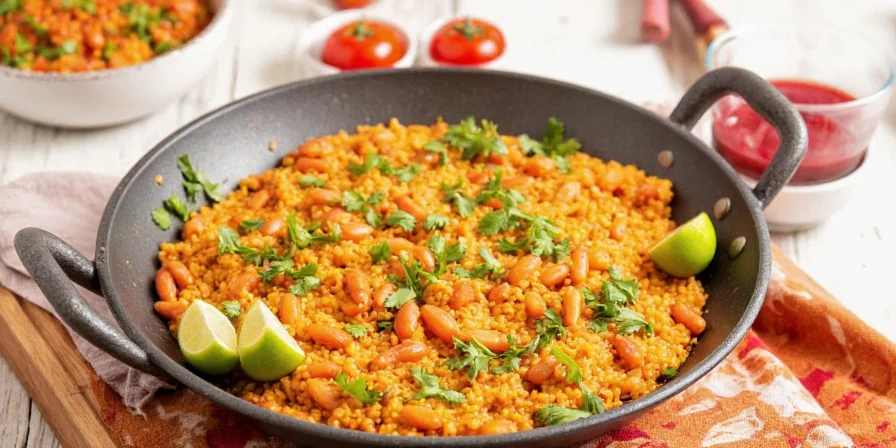
Why Valencia Paella?
You might be wondering, "What makes Valencia paella different from all the other paellas out there?" Well, dear spice lover, let me tell you — it’s all about authenticity, tradition, and balance.
- Rice as Royalty: Bomba rice rules the pan here — short-grained, absorbent, and proud.
- Spice Symphony: Saffron isn’t just a garnish; it’s the golden conductor of flavor.
- Firepower: A real Valencian wouldn't dream of cooking this indoors unless forced to!
Essential Ingredients for Authenticity
Before we dive into the how-to, let’s talk ingredients. Each one plays a vital role in crafting that perfect socarrat (the coveted crispy bottom layer). Here's what you need:
| Ingredient | Role | Substitutes |
|---|---|---|
| Bomba Rice | Absorbs broth without turning mushy | Carnaroli or Calrose (not ideal, but works) |
| Saffron Threads | Provides aroma, color, and depth | Paprika + turmeric for color, no substitute for flavor |
| Chicken & Rabbit | Protein base with rich umami notes | Seafood (for seafood paella) or mushrooms |
| Garlic & Tomatoes | Builds the flavor foundation | Tomato paste if fresh is unavailable |
| Green Beans & Butter Beans | Adds texture and seasonal charm | Peas or bell peppers |
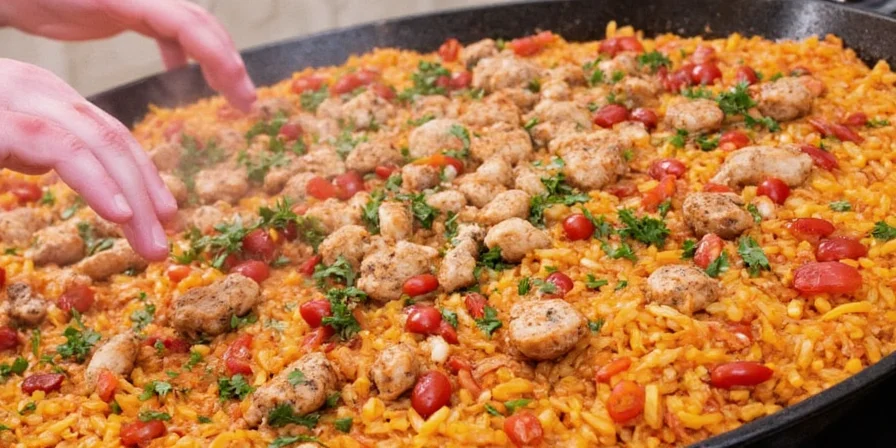
Step-by-Step Guide: Let the Fire Dance Begin
1. The Holy Grail – The Pan
Use a wide, shallow paellera. It helps with even heat distribution and allows that magical socarrat to form at the bottom.
2. Marinate the Meat
Season your chicken and rabbit pieces with paprika, salt, pepper, and a splash of white wine. Let them rest for 20–30 minutes while you prep everything else.
3. Brown the Protein
In the paellera over medium-high heat, sear the chicken and rabbit until browned on both sides. Remove and set aside.
4. Build the Sofrito
Add olive oil and sauté garlic, onions, and tomatoes until soft and fragrant. Stir in green beans and butter beans, then add a pinch of salt.
5. Add the Rice & Toast It
This is the magic moment! Add the Bomba rice and stir well to coat in the sofrito. Toast for 2–3 minutes to unlock its nutty potential.
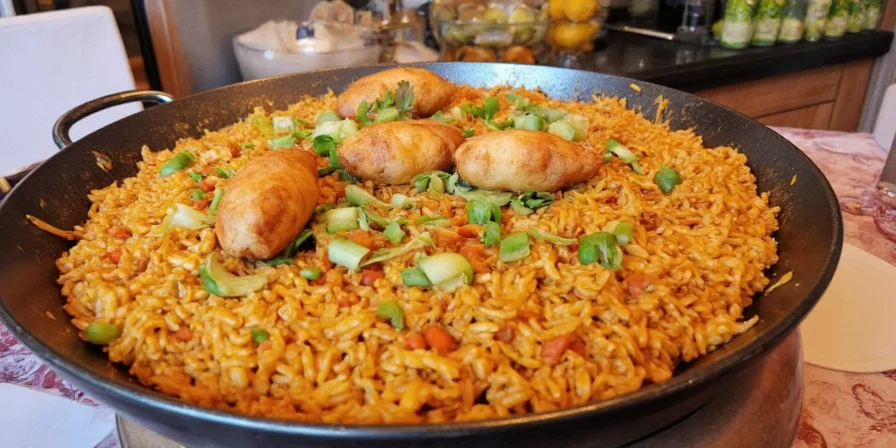
6. Pour in the Broth
Add back the meat and any juices, then pour in hot homemade chicken broth (with saffron infused in it). Make sure the liquid is about 2 fingers above the rice level.
7. Cook Without Stirring
This is where many fail. No stirring! Let the paella cook uncovered for about 18–20 minutes. Rotate the pan occasionally for even doneness.
8. Rest & Revel
Once the rice is cooked and the socarrat is singing under the crust, remove from heat and let it rest for 5 minutes before serving.
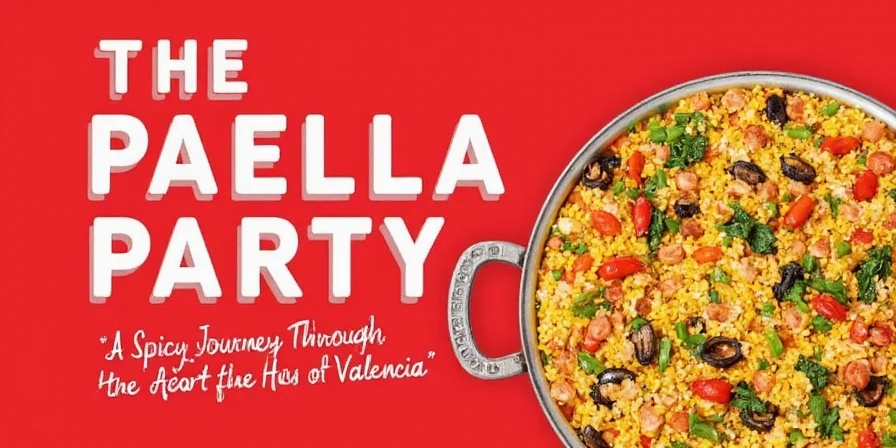
Common Mistakes to Avoid
Let’s save your weekend dinner party with a quick list of “what not to do”:
- ❌ Using long-grain rice like basmati or jasmine
- ❌ Over-stirring after adding broth
- ❌ Covering the pan while cooking
- ❌ Rushing the resting time
- ❌ Skipping the socarrat
Spice Secrets: What Makes It Sing?
The heart of Valencian paella lies in its use of spices, especially saffron. But did you know the spice blend can vary slightly depending on the region and family tradition?
| Spice | Flavor Contribution | Tips for Use |
|---|---|---|
| Saffron | Earthy, floral, slightly bitter | Steep threads in warm broth or water for best extraction |
| Paprika (sweet or smoked) | Smoky depth or sweet warmth | Add early in cooking to bloom in oil |
| Black Pepper | Sharpens flavors | Freshly ground for best impact |
| Smoked Sea Salt | Enhances richness | Optional finisher for smoky lovers |
Wine Pairing Tips
No Spanish meal is complete without a glass (or three) of wine. Here are some perfect matches:
- 🍷 Verdejo – A crisp white from Rueda, refreshing contrast
- 🍷 Garnacha Tinta – Medium-bodied red, great with the earthy saffron
- 🍹 Sangria – If you’re going full festive mode
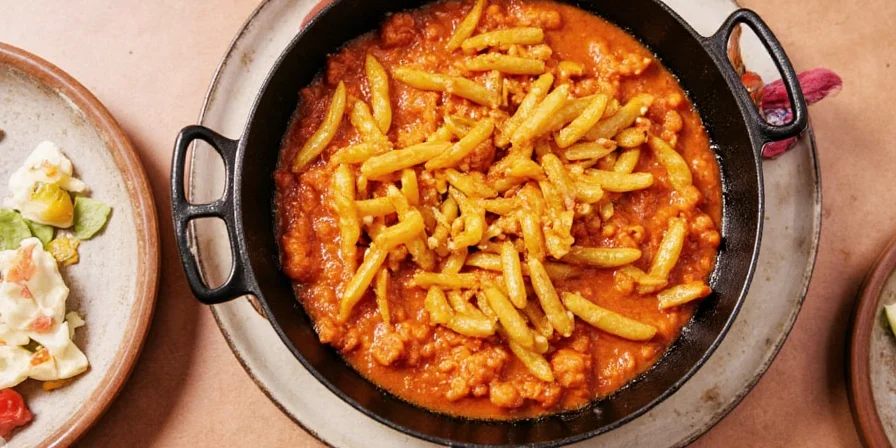
Regional Variations: Is There One True Paella?
While traditional Valencian paella sticks to land-based ingredients, the world has made its own versions. Here’s a quick breakdown:
| Type | Main Ingredients | Authenticity Score |
|---|---|---|
| Valenciana | Chicken, rabbit, beans | 💯 100% |
| De Marisco | Shrimp, mussels, squid | 🎯 90% (if done right) |
| De Montaña | Pork, chorizo, mushrooms | 🔥 Popular, not classic |
| Mixta | Meat + seafood combo | 😅 Controversial |
Conclusion: Cooking with Passion, Not Just Recipes
Cooking Valencia paella isn’t just about following steps — it’s about honoring tradition, playing with fire, and sharing joy around a big table. With the right spices, techniques, and attitude, you too can bring a bit of Valencia to your backyard, kitchen, or camping stove.
So grab your paellera, fire up the burner, and remember: every grain of rice tells a story. And if you mess it up the first time? Well, that’s just another excuse to gather friends and try again.
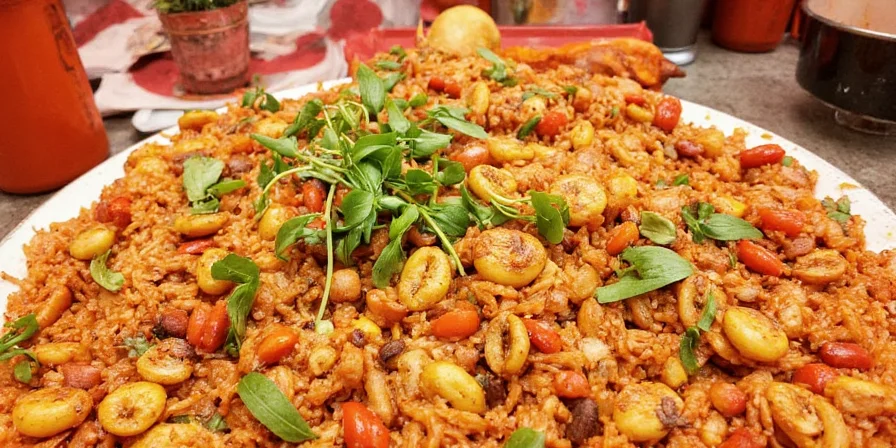
Final Thoughts & Tips Recap
- Always toast the rice before adding liquid
- Never stir once broth hits the pan
- Use Bomba rice if possible
- Infuse saffron in warm broth
- Rest before serving for better socarrat
- Cook with people you love

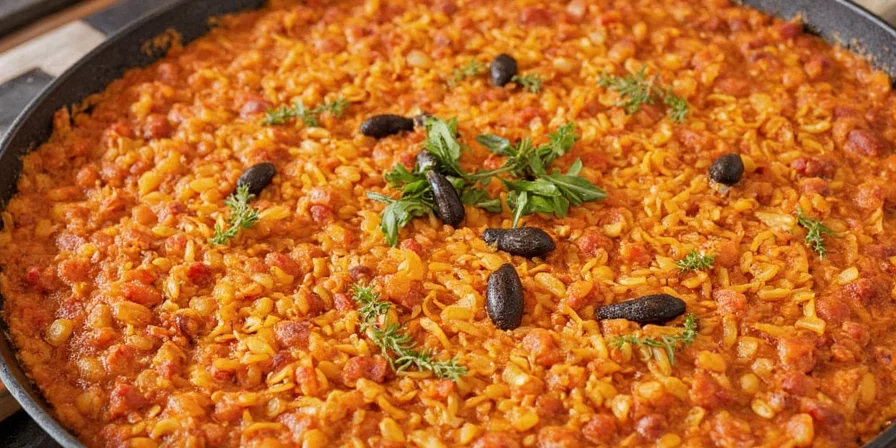









 浙公网安备
33010002000092号
浙公网安备
33010002000092号 浙B2-20120091-4
浙B2-20120091-4